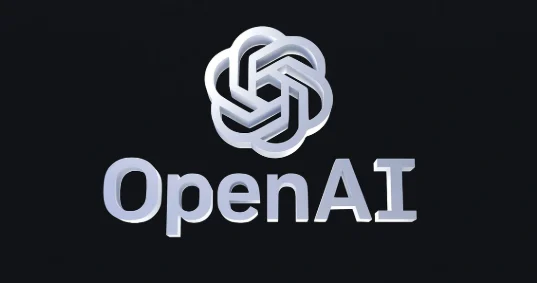Regulatory scrutiny and rising operational costs are reshaping the technology landscape as companies navigate compliance challenges and evolving business models. Italy’s data protection authority recently fined OpenAI €15 million for privacy violations tied to its flagship AI model, ChatGPT, highlighting the need for transparency in AI data practices. Meanwhile, Bitcoin miner TeraWulf is diversifying into artificial intelligence to offset increasing mining expenses, showcasing how AI’s growing demand is influencing strategies across sectors.
TeraWulf Expands into AI with 70 MW Lease Amid Rising Bitcoin Mining Costs
TeraWulf, a prominent Bitcoin mining company, is diversifying its operations as it faces mounting Bitcoin mining costs. On Dec. 23, the firm announced a significant pivot toward artificial intelligence (AI) by leasing over 70 megawatts (MW) of data center infrastructure to Core42, an AI and cloud service provider.
The agreement will see Core42 utilize the 70 MW of infrastructure at TeraWulf’s Lake Mariner facility in upstate New York. The facility will be energized in phases between the first and third quarters of 2025. This partnership is expected to bolster TeraWulf’s earnings by complementing its existing Bitcoin mining operations with AI-driven computing revenue streams.
Paul Prager, CEO of TeraWulf, highlighted the strategic importance of this move. “Surging demand for scalable, energy-efficient infrastructure presents a tremendous opportunity,” Prager said. “This agreement not only diversifies our revenue streams but also significantly enhances our long-term earnings potential.”
TeraWulf’s expansion into AI comes as Bitcoin miners grapple with rising production costs. According to a recent report from CoinShares, the weighted average cash cost to mine a single Bitcoin rose by 13% to $55,950 in the third quarter of 2024. These escalating costs have squeezed profit margins across the sector, prompting miners to explore alternative revenue opportunities.
The report also noted that higher production costs have led to a decrease in the market share of public Bitcoin miners within the network’s overall hashrate. Several companies, including TeraWulf, are now reallocating capital to AI and cloud computing projects, reflecting a broader industry trend toward diversification.
TeraWulf’s Q3 financial performance highlighted the pressures facing Bitcoin miners. The company reported earnings of minus 6 cents per share, falling short of analysts’ expectations of minus 3 cents per share. Despite these setbacks, TeraWulf has benefited from Bitcoin’s 48% price surge this quarter, which pushed the cryptocurrency above the six-figure mark for the first time.
However, the stock market response to TeraWulf’s announcement was muted. On Dec. 23, TeraWulf’s share price closed down 12.1% at $5.81, although it regained 2% in after-hours trading. Despite the recent dip, TeraWulf remains one of the strongest performers in the Bitcoin mining industry, with its share price up 152.6% in 2024.
Shifting Industry Dynamics
The partnership with Core42 comes amid a growing trend among Bitcoin miners to pivot toward AI and cloud computing. CoinShares noted that AI is increasingly attracting the attention of traders and venture firms, offering new avenues for growth as mining costs rise. Other miners have taken a different approach, such as issuing convertible notes to buy more Bitcoin instead of expanding their operations.
TeraWulf’s strategy of pursuing organic growth at its existing facilities aligns with its stated commitment to shareholder returns. In July, the company revealed its openness to a potential merger to boost operating hashrate but emphasized that such a move would not be made solely for “empire building.”
As the Lake Mariner facility transitions into a dual-purpose site supporting both Bitcoin mining and AI-driven computing, TeraWulf positions itself as a versatile player in the digital infrastructure space. The phased rollout of the new infrastructure is expected to provide steady revenue growth over the coming years, balancing the volatility of Bitcoin mining with the stability of AI and cloud computing demand.
With Bitcoin’s price volatility continuing to influence the sector, TeraWulf’s diversification strategy could serve as a blueprint for other miners seeking to navigate the challenges of rising costs and competitive pressures. Whether this approach will sustain its upward trajectory remains to be seen, but the company’s willingness to adapt to market conditions is a promising sign for its future.
Italy Fines OpenAI €15 Million Over Data Privacy Violations and Orders Public Awareness Campaign
In other AI news, Italy’s data protection authority, the Garante, has imposed a €15 million ($15.7 million) fine on OpenAI, the maker of ChatGPT, following an extensive investigation into the company’s data collection practices. The ruling brings attention to significant concerns about data privacy, transparency, and age verification in the deployment of generative artificial intelligence models.
The Italian Data Protection Authority (IDPA) stated on Dec. 20 that OpenAI violated data privacy regulations under the European Union’s General Data Protection Regulation (GDPR) by processing users’ personal data without a proper legal basis. The watchdog also noted that OpenAI failed to notify the agency of a data breach that occurred in March 2023.
The IDPA’s findings criticized OpenAI for breaching the principles of transparency and user information obligations. It stated that the company did not adequately inform users about how their data was being collected and utilized to train its flagship AI model, ChatGPT.
The investigation also revealed that OpenAI lacked sufficient mechanisms to verify users’ ages, potentially exposing minors under 13 years old to inappropriate responses generated by the AI. The IDPA emphasized that this failure posed significant risks to children’s development and self-awareness.
In addition to the fine, the IDPA ordered OpenAI to conduct a six-month public awareness campaign to educate the public about ChatGPT’s data collection practices. This campaign is expected to span multiple platforms, including radio, television, newspapers, and the internet.
The campaign will aim to inform users and non-users alike about how their data is collected and used to train generative AI, as well as their rights to oppose, rectify, or delete their data under GDPR.
Following the campaign, users are expected to have a clearer understanding of how to exercise their data protection rights, including opting out of having their data used for AI training purposes.
The IDPA’s investigation began in March 2023, shortly after Italy became the first Western country to temporarily ban ChatGPT over privacy concerns. At the time, the IDPA cited suspected breaches of data protection rules and demanded greater transparency from OpenAI. The ban was lifted in late April after the company implemented additional privacy safeguards.
The European Data Protection Board (EDPB) played a role in shaping the investigation’s outcome, providing an opinion on the use of personal data in developing and deploying AI models. The IDPA said it considered this opinion before concluding its probe.
Fine and Mitigating Factors
Under GDPR regulations, companies can be fined up to €20 million or 4% of their global turnover for violations. The IDPA noted that OpenAI’s cooperative attitude during the investigation helped reduce the size of the penalty.
During the investigation, OpenAI moved its European headquarters to Ireland, placing it under the jurisdiction of the Irish Data Protection Commission (DPC). The IDPA confirmed that the DPC is now the lead supervisory authority for any future investigations into OpenAI.
The fine and public awareness campaign signal a turning point in regulatory oversight of AI models in Europe. The IDPA’s actions shed some light on the growing scrutiny that generative AI companies face as governments and regulators aim to balance innovation with user privacy and data security.
Italy’s approach also highlights the challenges of enforcing data protection laws on rapidly evolving technologies. While the temporary ban on ChatGPT earlier this year drew criticism, it has set a precedent for other countries to evaluate their own data privacy measures.
OpenAI’s case could prompt further inquiries into the practices of other AI developers, particularly as generative AI becomes increasingly integrated into daily life and business operations.
OpenAI has not yet issued an official response to the fine or the IDPA’s orders. However, the company previously apologized for outages and other disruptions as it worked to address regulatory concerns. It remains to be seen how OpenAI will adapt its data handling practices in response to the IDPA’s ruling.












